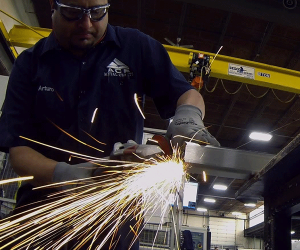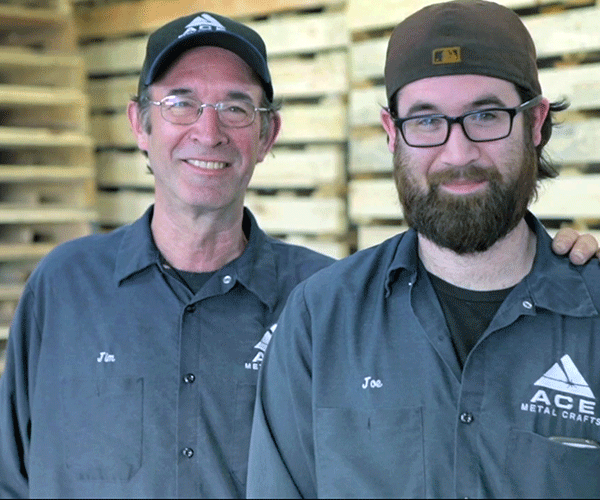By Rieva Lesonsky
I believe that when big companies and small businesses get together to share ideas, great things can happen—and so does Toyota. Bringing to life its philosophy that businesses have a purpose bigger than making money—to have a positive impact on people, society and the environment—Toyota is reaching out to share its unique and effective process philosophy with other manufacturers, nonprofits and community organizations to help them develop more efficient operations.
Toyota has partnered with filmmakers to create a series of short films documenting some of its most impactful projects. Called The Toyota Effect, the series highlights the company’s mission to share its Toyota Production System (TPS) with other organizations. TPS is an integrated social-technical system, first developed in the 1940s in Japan, that uses small, continuous improvements (Kaizen) to create high-quality work, making organizations more competitive.
Recently, I had the chance to preview Toyota’s mini-film on ACE Metal Crafts. With Toyota’s help, this small manufacturer cut their production and shipping process from eight weeks per order down to five-and-a-half weeks per order using TPS.
 ACE Metal Crafts is a second-generation business that CEO Jean Pitzo inherited from her father and plans to pass on to her daughter one day. In recent years, however, ACE had grown rapidly and the company’s systems hadn’t kept pace with demand. Toyota’s TPS team stepped in, working with the company over an 18-month period holding improvement workshops three days per month to improve ACE Metal Craft’s processes.
ACE Metal Crafts is a second-generation business that CEO Jean Pitzo inherited from her father and plans to pass on to her daughter one day. In recent years, however, ACE had grown rapidly and the company’s systems hadn’t kept pace with demand. Toyota’s TPS team stepped in, working with the company over an 18-month period holding improvement workshops three days per month to improve ACE Metal Craft’s processes.
I was fascinated by the philosophy behind TPS and by the huge effects that small changes can have. For example, Toyota suggested that ACE’s shipping department tape off a floor space the size of a shipping truck, then stack finished orders in the space so they can easily see when they’re ready to load a truck. By making tiny improvements like these, ACE cut one production process from six days down to six minutes.
TPS not only improves systems, it also improves employees’ lives by empowering them to make a difference. “I’ve taken away from my experience with Toyota that most people want to succeed in their work, and bad processes make this impossible,” says Pitzo. “I also learned that it is up to all of us to improve the company, not just me. The more team members that are trained in the eight-step problem solving method, the more problems can be solved.”
“[Employees] have seen the positive changes that have resulted from our efforts with Toyota,” adds ACE President Dale Ball. “The level of engagement has increased and the level of chaos is down. Many employees have had a chance to present their Kaizen accomplishments to the rest of the employees and have pride about making a difference.”
Since working with Toyota, ACE has added 20 employees. “We have so much more capacity since we started with Toyota,” says Ball. What does the future hold for ACE? “We plan to develop our problem-solving process company-wide,” says Ball, “[because] the better we are at solving problems, the stronger our competitive advantage will be in the future. We want to continue to grow organically and start to look at acquisitions. In the long term, we see a bright future with an abundance of growth opportunities that will help us with our purpose to unleash potential in people.”
Want to learn more? Check out Toyota’s recently released mini-film on ACE Metal Crafts here.
This post was created in partnership with Toyota. All opinions expressed in the post are my own and not those of Toyota.







